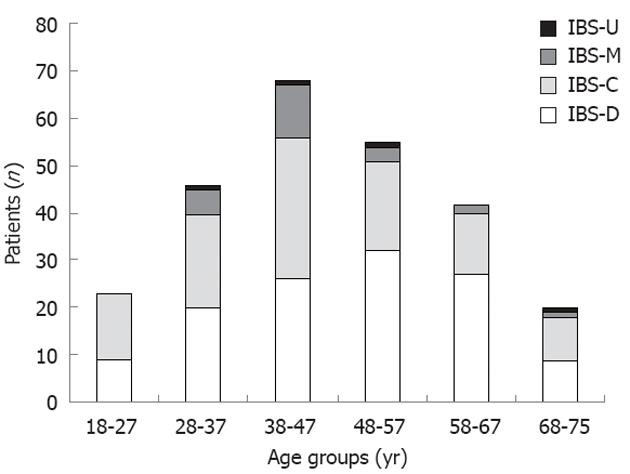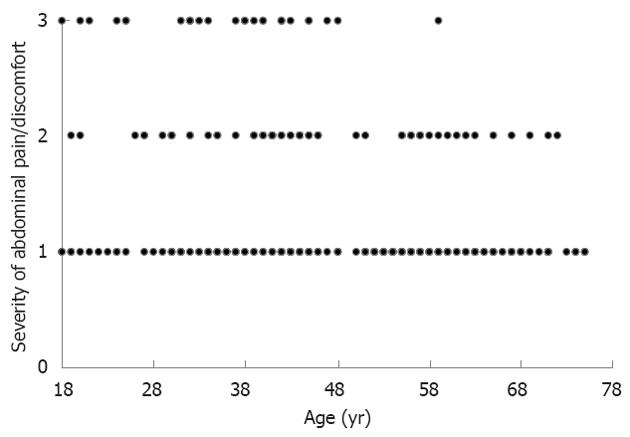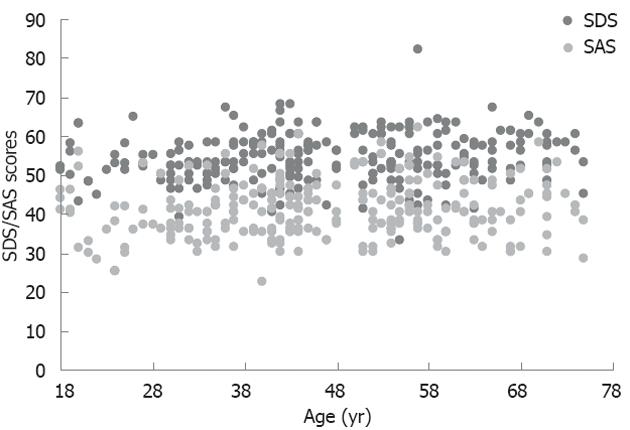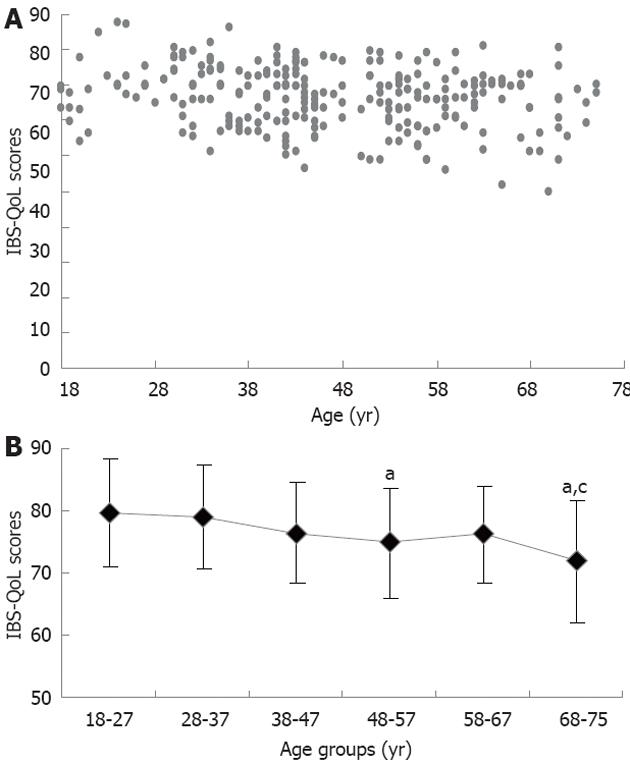Copyright
©2012 Baishideng Publishing Group Co.
World J Gastroenterol. Dec 28, 2012; 18(48): 7175-7183
Published online Dec 28, 2012. doi: 10.3748/wjg.v18.i48.7175
Published online Dec 28, 2012. doi: 10.3748/wjg.v18.i48.7175
Figure 1 Distribution of irritable bowel syndrome subtypes in each age group.
IBS: Irritable bowel syndrome; IBS-C: IBS with constipation; IBS-D: IBS with diarrhea; IBS-M: Mixed IBS; IBS-U: Unsubtyped IBS.
Figure 2 Severity of abdominal pain/discomfort by age.
1 = Mild; 2 = Moderate; 3 = Severe.
Figure 3 Zung self-rated anxiety and depression scale scores according to age.
SAS/SDS: Zung self-rated anxiety and depression scale.
Figure 4 Specific quality of life questionnaire scores for patients with irritable bowel syndrome.
A: Specific quality of life questionnaire scores for patients with irritable bowel syndrome (IBS) according to age; B: Specific quality of life questionnaire scores for patients with IBS in each age group. aP < 0.05 vs 18-27-year and 28-37-year groups; cP < 0.05 vs 48-57-year group. QoL: Quality of life; SAS/SDS: Zung self-rated anxiety and depression scale.
Figure 5 Association of abdominal pain/discomfort severity, and Zung self-rated anxiety and depression scale scores for patients with irritable bowel syndrome in each age group.
A: Age 18-27 years; B: Age 28-37 years; C: Age 38-47 years; D: Age 48-57 years; E: Age 58-67 years; F: Age 68-75 years. A1 to F1, association of abdominal pain/discomfort with quality of life in each age group. Severity of abdominal pain/discomfort was negatively correlated with irritable bowel syndrome-specific quality of life questionnaire (IBS-QoL) scores in the 58-67-year and 68-75-year groups (P < 0.05), but there was no correlation in the 18-27-year, 28-37-year, 38-47-year or 48-57-year groups (P > 0.05); A2 to F2, association of Zung Self-Rated Depression Scale (SDS) scores with quality of life in each age group. SDS scores were negatively correlated with IBS-QoL scores in all age groups (P < 0.01); A3 to F3, association of Zung Self-Rated Anxiety Scale (SAS) scores with quality of life in each age group. SAS scores were negatively correlated with IBS-QoL scores in all age groups (P < 0.01).
- Citation: Tang YR, Yang WW, Liang ML, Xu XY, Wang MF, Lin L. Age-related symptom and life quality changes in women with irritable bowel syndrome. World J Gastroenterol 2012; 18(48): 7175-7183
- URL: https://www.wjgnet.com/1007-9327/full/v18/i48/7175.htm
- DOI: https://dx.doi.org/10.3748/wjg.v18.i48.7175













